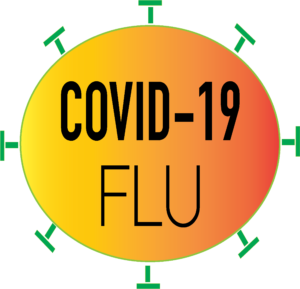 Submitted by Lori Cannon, RN
Submitted by Lori Cannon, RN
NorthLakes Community Clinic
We’re heading into flu season, and this year it’s more important than ever to get your flu shot. With the pandemic still going strong in much of the country, scientists and medical professionals are concerned about this year’s flu season overlapping with COVID-19. There are a number of reasons for this concern. First and foremost, it is possible to be infected with both viruses at the same time. Obviously, this would be a dangerous situation for anyone, particularly so for patients at high risk for complications from either COVID-19 or influenza.
Another concern is that influenza alone causes numerous hospitalizations and deaths every year. In a bad flu season, hospitals can be quite full with patients suffering from complications due to influenza. When we add in hospitalizations from the current pandemic, there is a real risk of hospital systems becoming overwhelmed.
Finally, we don’t know what this year’s flu season will look like, nor do we know whether the spread of COVID-19 will increase or decrease. This pandemic overlapped a bit with the end of last year’s flu season, but it is difficult to predict what this fall and winter will look like.
All of that can feel scary. But the good news is that we have been learning how to adapt to this new normal, and we will continue to do so. And while so many factors are out of our control and feel unpredictable, there are a few very important things we can do to protect ourselves, our loved ones and our community. Continue to wear masks while in public, follow good social distancing guidelines and avoid large gatherings, wash your hand frequently, and get your flu shot as soon as you can this year.
In normal years, we might encourage folks to hold off until later in October or even November before getting the flu vaccine, to ensure that they are protected through the peak of flu season in mid to late winter. This year, that guidance is a bit different. We want to make sure people are protected against influenza as soon as possible in order to try and slow the spread of the flu early on. Also, while there is not a vaccine against COVID -19 available yet, if and when one does become available it is best to have that flu shot under your belt for at least a month to allow antibodies to fully develop in your system.
As is the case every year, it’s important to remember a few facts about the flu vaccine. It cannot give you the flu, though you may experience a brief period of muscle aches or even a low-grade fever as your immune system responds to the vaccine. The flu shot lessens your chance of getting the flu, and can lessen the severity of symptoms if you do get it. This decreases the likelihood of hospitalization with influenza.
We will be providing flu vaccines at all of our medical clinics. We hope to begin offering vaccinations in early October for high risk patients. We will expand that to everyone as we have more vaccine available.
Lori Cannon, MSN, RN, PCMH, CCE, is NorthLakes Care Management & PCMH Manager







